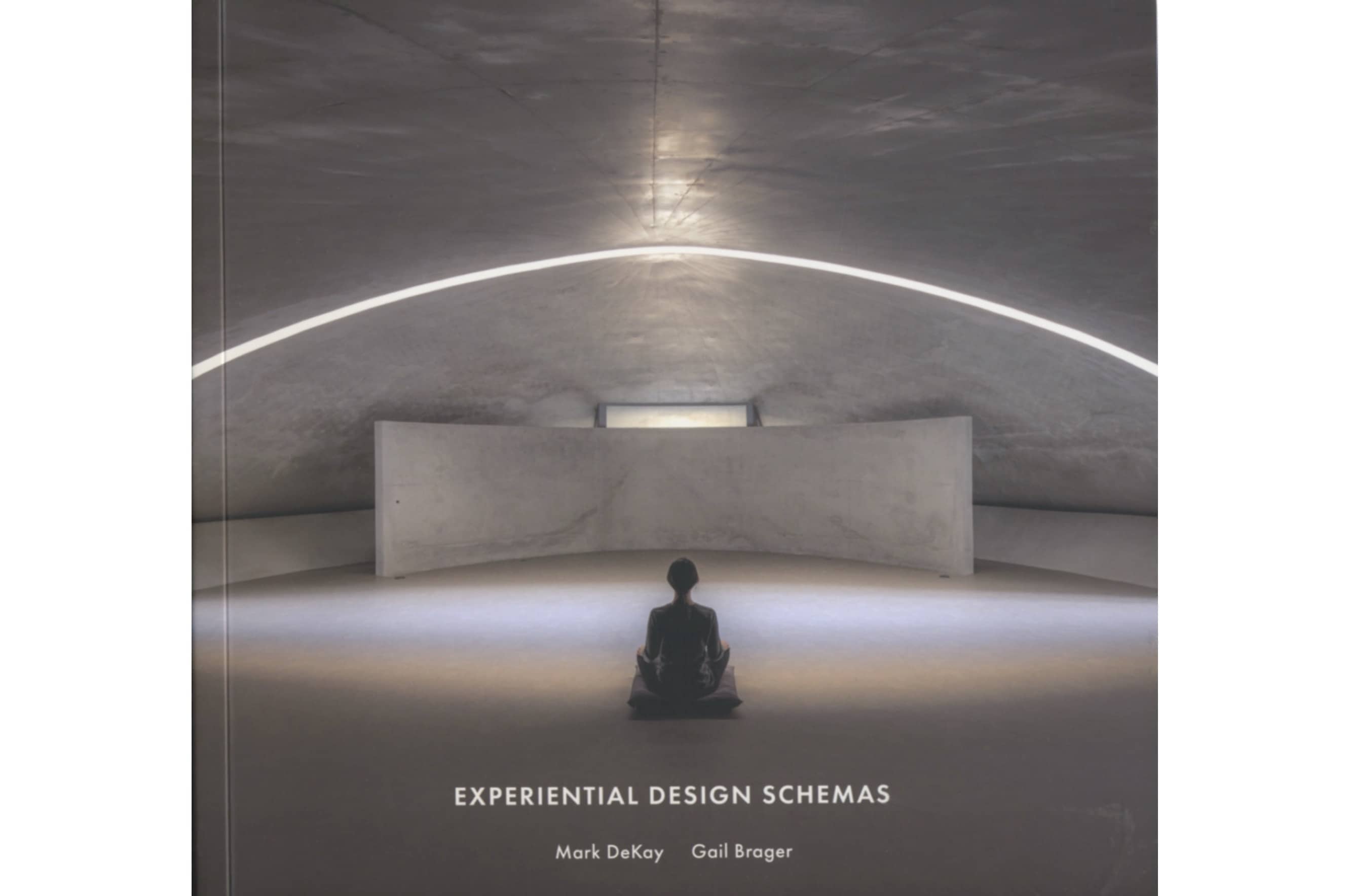
By Mark DeKay and Gail Brager. Oro Editions, 2023, ISBN: 9781957183732
Dean Hawkes (Emeritus Professor, Welsh School of Architecture and Emeritus Fellow, Darwin College, Cambridge) welcomes this valuable resource for thinking about the many experiential dimensions of architecture.
More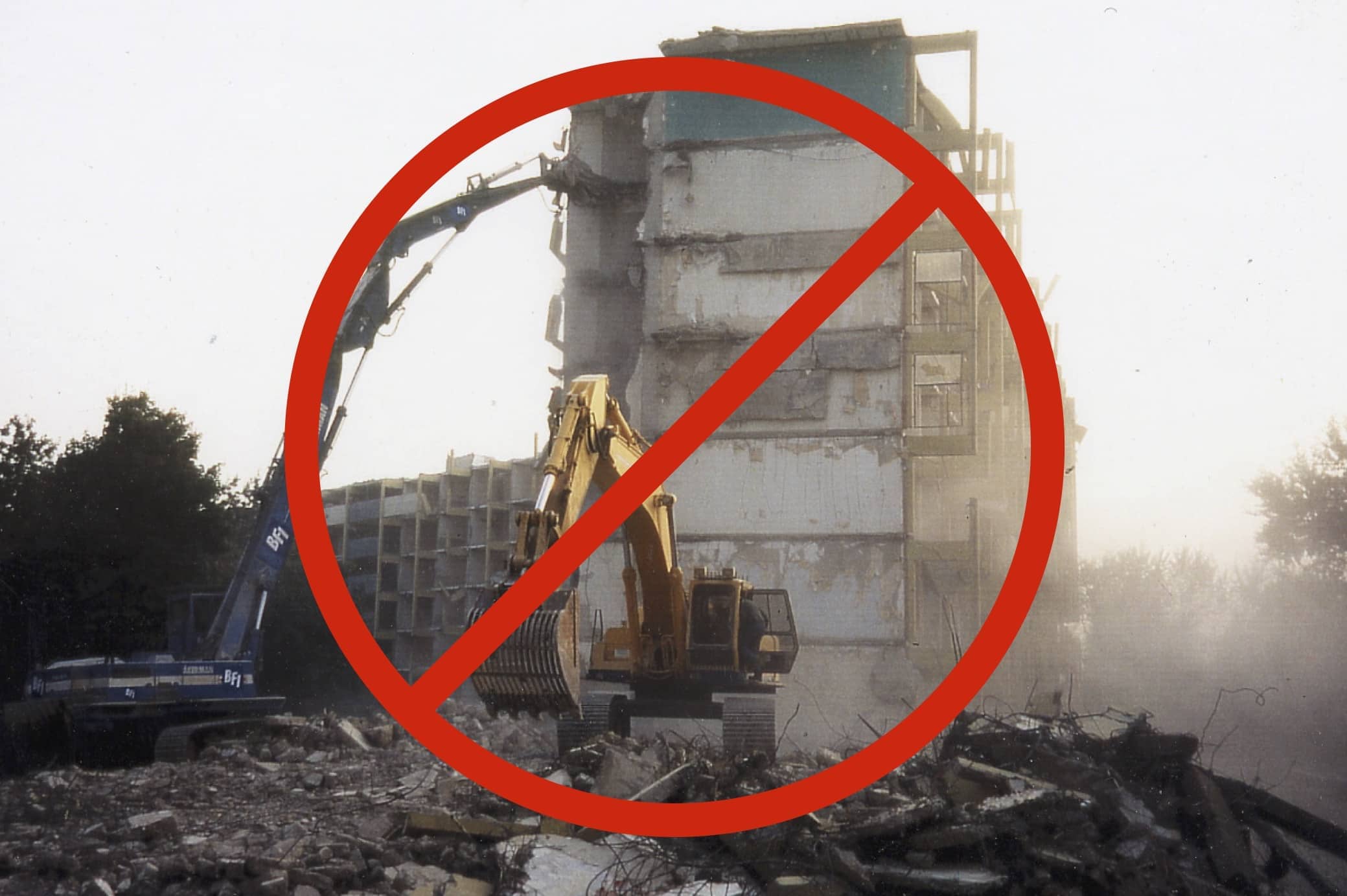
Demolition has far-reaching consequences for people, nature and the climate. What can be done to slow its rate?
André
Thomsen (Delft University of Technology) comments on the
recent Buildings & Cities special issue ‘Understanding Demolition’ and explains why this phenomenon is only beginning to be understood more fully as a social and behavioural set of issues. Do we need an epidemiology of different demolition rates?

Why urban planning needs to become more diverse and inclusive.
Safaa Charafi asks: is it possible to decolonialise the planning profession to create more inclusive and egalitarian urban settings? It is widely accepted that cities are built by men for other men. This male domination in urban planning results in cities that often do not adequately address challenges encountered by women or ethnic and social minorities. Although efforts are being taken to include women in urban planning, women of colour are still under-represented in many countries, resulting in cities that often overlook their needs.
More
The latest LCA Forum considered key issues in research and labelling regarding the representation of electricity mix in buildings’ operational electricity consumption.
Electricity consumption is an important contributor to their environmental impacts. The forum discussed the following key questions:
- What is the current state of electricity mix modelling for construction products and buildings’ use phases?
- How do different modelling approaches reflect and/or influence the transition of the electricity sector of a country to renewables?
- Which electricity mix modelling approach(es) should be offered in LCA databases?

Governments need to provide a clear policy and strategy for low-carbon heating so implementation can gather momentum.
Engineer Chris Twinn (Twinn Sustainability Innovation and LETI member) argues that the urgency of decarbonisation means that UK (and other countries) must make clear decisions about a heating system strategy and its implementation. Prevaricating will make the transition slower and risk missing important climate commitments.
More
How can research assist architects & others to substantiate the intended social benefits in an architectural project?
Edward Ng (Chinese University of Hong Kong) provides an architect’s perspective on the Buildings & Cities special issue ‘Social Value of the Built Environment’.
More
Have civil society and governments ceded too much power and influence to a few tech corporations? Why analysis of the smart city needs to include private sector data.
Dillon Mahmoudi (University of Maryland, Baltimore County) and Alan Wiig (University of Florida) comment on the contributions of the Buildings & Cities special issue Data Politics in the Built Environment. This commentary considers how tech corporates such as Amazon are changing urban life and creating new forms of automated surveillance.
More
Why more just and democratic ways are needed for living in smart built environments.
Miguel Valdez (Open University) comments on the contributions of the Buildings & Cities special issue Data Politics in the Built Environment. This commentary considers an additional perspective and provides an additional foundation to support more progressive data politics in the built environment. The three Aristotelian virtues of ‘techne’, ‘episteme’ and ‘phronesis’ and epistemic justice provide suitable lenses to critique smart city politics.
More
The rationale and implications of ensuring adequate daylight provision are considered for designing cities and buildings.
The World Health Organization lists universal access to clean air, clean water, nutritious food and safe shelter as key components of public health, Lisa Heschong (author, architectural researcher & a fellow of the Illuminating Engineering Society), argues that access to ample daylight, both outdoors and indoors, should be added to that list. Evidence from many different scientific fields1 reveal that humans live healthier, happier, more productive lives with daily exposure to the natural patterns of sunlight.
More
by Matti Kuittinen (Aalto University & the Nordic authority group working for climate declarations for buildings 2020–2023)
For mitigating the built environment's large carbon footprint, regulation within the next 10 years is needed in all countries. The Nordic countries have been co-developing climate policies for buildings since 2018 and are already seeing the positive outcomes from joint efforts. COP28 can apply these principles and lessons elsewhere. To prevent duplication of effort in each country, international collaboration with climatically and culturally similar countries can be beneficial.
More
How is social value created, defined and measured in both placemaking (urban design, architecture and real estate) and construction (procurement and labour) processes?
Social value has an important role to play in the delivery of the SDGs. A rebalancing of value to include social and environmental value, as well as economic and commercial value, is needed to ensure the shaping of communities and places will have wellbeing outcomes. This special issue explores current and potential approaches to defining, delivering, monitoring and evaluating social value in the built environment, its benefits and consequences and its relation to other existing policy mechanisms.
More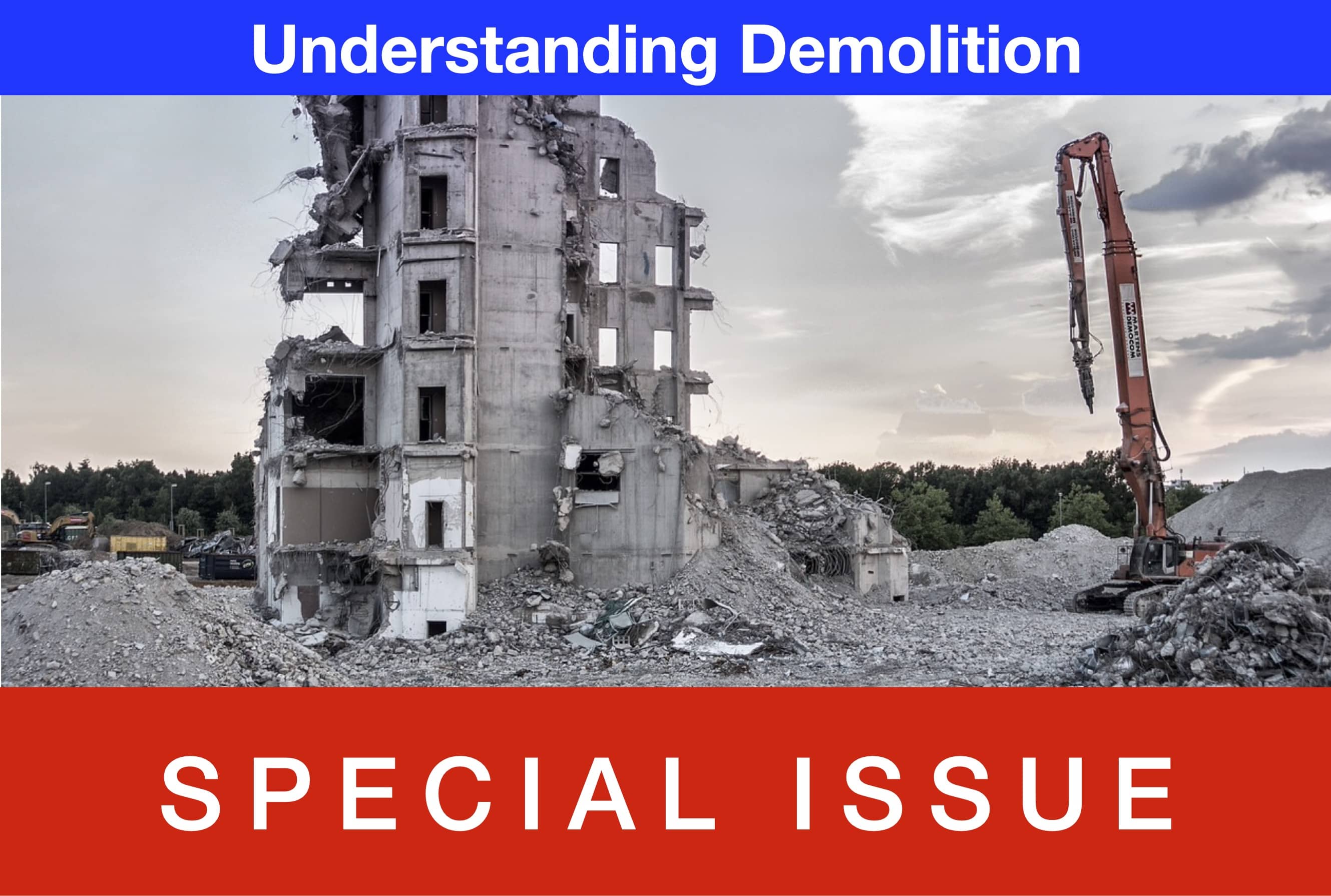
This special issue examines why demolition occurs, its consequences and how a more sustainable approach can be created.
In the sustainability discourse, the long-lasting nature of buildings and building stocks is rarely investigated. This special issue explores when, why and how demolition occurs with the aim to understand its environmental, socio-economic and cultural drivers, and consequences for policy and practice. The potential for avoiding building replacement (demolition and subsequent new build) and favouring retention is probed. Older buildings tend to be seen either as a problem and a threat, e.g. a contributor to climate change due to their allegedly excessive use of energy or, if they are heritage buildings, as being themselves threatened by the changing climate. New knowledge has emerged that challenges this perception, suggesting that older can potentially outperform new build. Profound questions arise about the nature of ‘development’ in the Global North. In particular, about public policies and whether the role and business models of the construction industry need to be reconfigured to a larger emphasis on stewardship of the existing building stock.
MoreEndorsements
Latest Peer-Reviewed Journal Content
Evaluating mitigation strategies for building stocks against absolute climate targets
L Hvid Horup, P K Ohms, M Hauschild, S R B Gummidi, A Q Secher, C Thuesen, M Ryberg
Equity and justice in urban coastal adaptation planning: new evaluation framework
T Okamoto & A Doyon
Normative future visioning: a critical pedagogy for transformative adaptation
T Comelli, M Pelling, M Hope, J Ensor, M E Filippi, E Y Menteşe & J McCloskey
Suburban climate adaptation governance: assumptions and imaginaries affecting peripheral municipalities
L Cerrada Morato
Urban shrinkage as a catalyst for transformative adaptation
L Mabon, M Sato & N Mabon
Maintaining a city against nature: climate adaptation in Beira
J Schubert
Ventilation regulations and occupant practices: undetectable pollution and invisible extraction
J Few, M Shipworth & C Elwell
Nature for resilience reconfigured: global- to-local translation of frames in Africa
K Rochell, H Bulkeley & H Runhaar
How hegemonic discourses of sustainability influence urban climate action
V Castán Broto, L Westman & P Huang
Fabric first: is it still the right approach?
N Eyre, T Fawcett, M Topouzi, G Killip, T Oreszczyn, K Jenkinson & J Rosenow
Gender and the heat pump transition
J Crawley, F Wade & M de Wilde
Social value of the built environment [editorial]
F Samuel & K Watson
Understanding demolition [editorial]
S Huuhka
Data politics in the built environment [editorial]
A Karvonen & T Hargreaves
European building passports: developments, challenges and future roles
M Buchholz & T Lützkendorf
Decision-support for selecting demolition waste management strategies
M van den Berg, L Hulsbeek & H Voordijk
Assessing social value in housing design: contributions of the capability approach
J-C Dissart & L Ricaurte
Electricity consumption in commercial buildings during Covid-19
G P Duggan, P Bauleo, M Authier, P A Aloise-Young, J Care & D Zimmerle
Disruptive data: historicising the platformisation of Dublin’s taxi industry
J White & S Larsson
Impact of 2050 tree shading strategies on building cooling demands
A Czekajlo, J Alva, J Szeto, C Girling & R Kellett
Social values and social infrastructures: a multi-perspective approach to place
A Legeby & C Pech
Resilience of racialized segregation is an ecological factor: Baltimore case study
S T A Pickett, J M Grove, C G Boone & G L Buckley

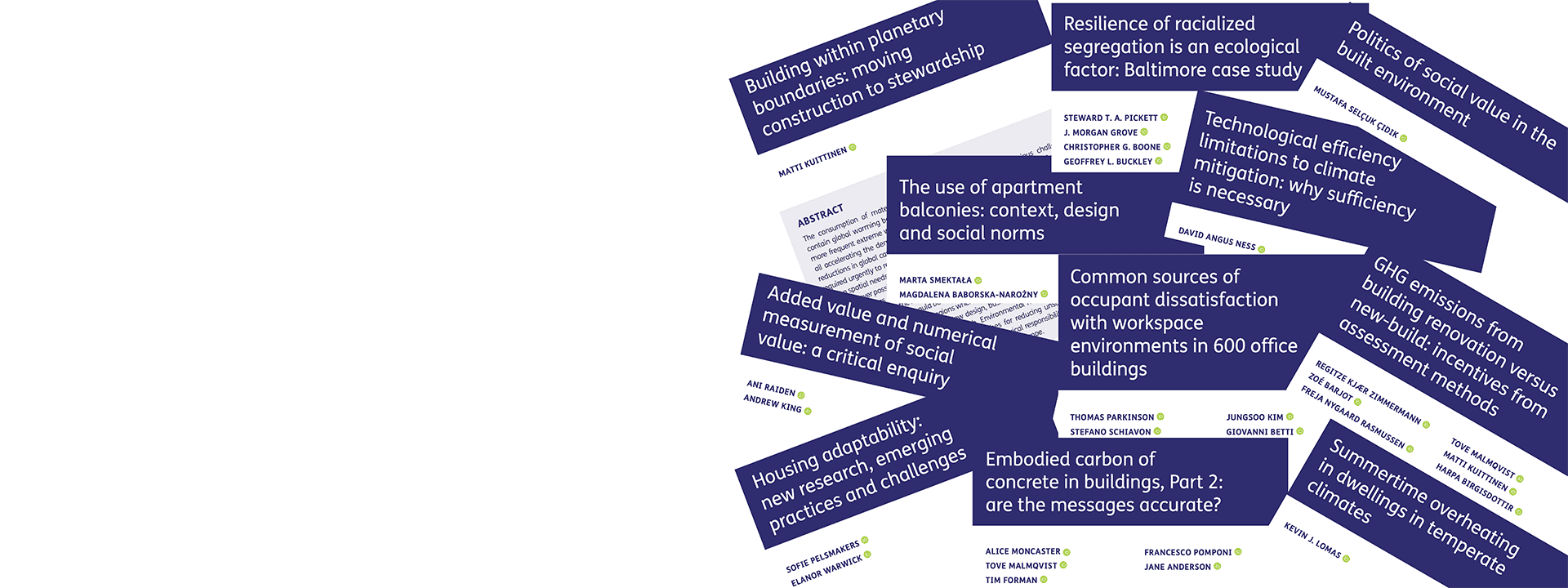


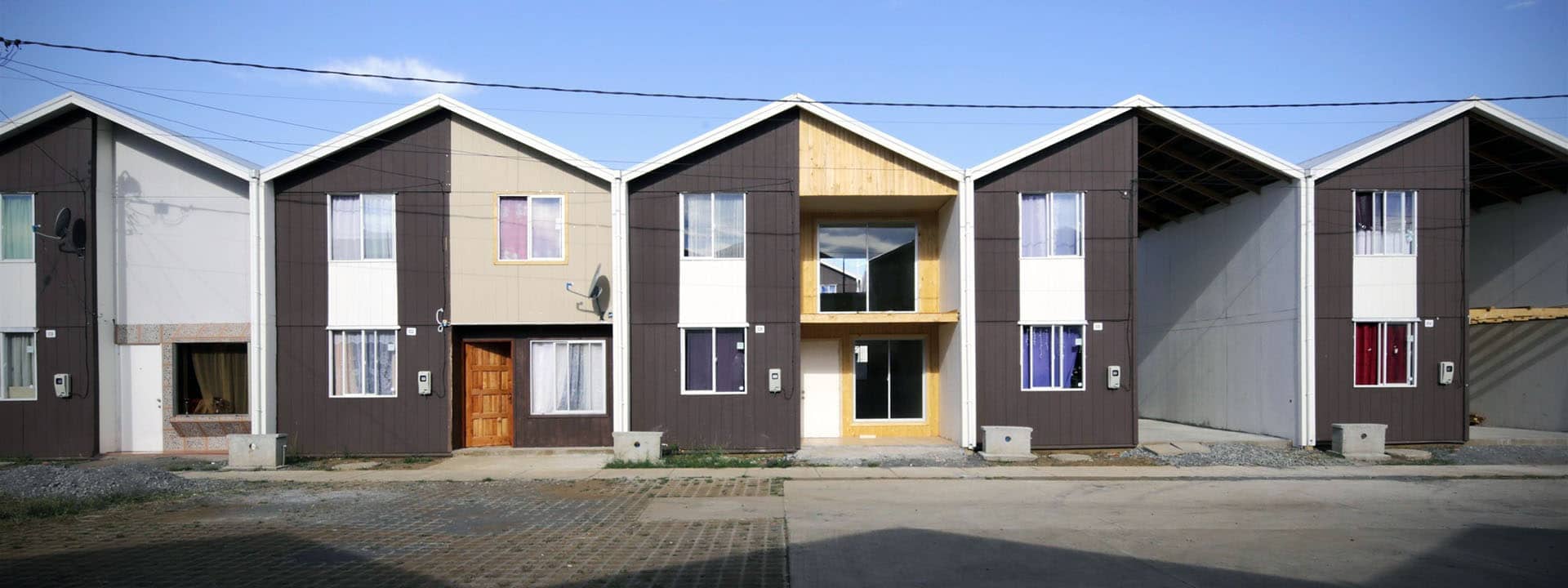
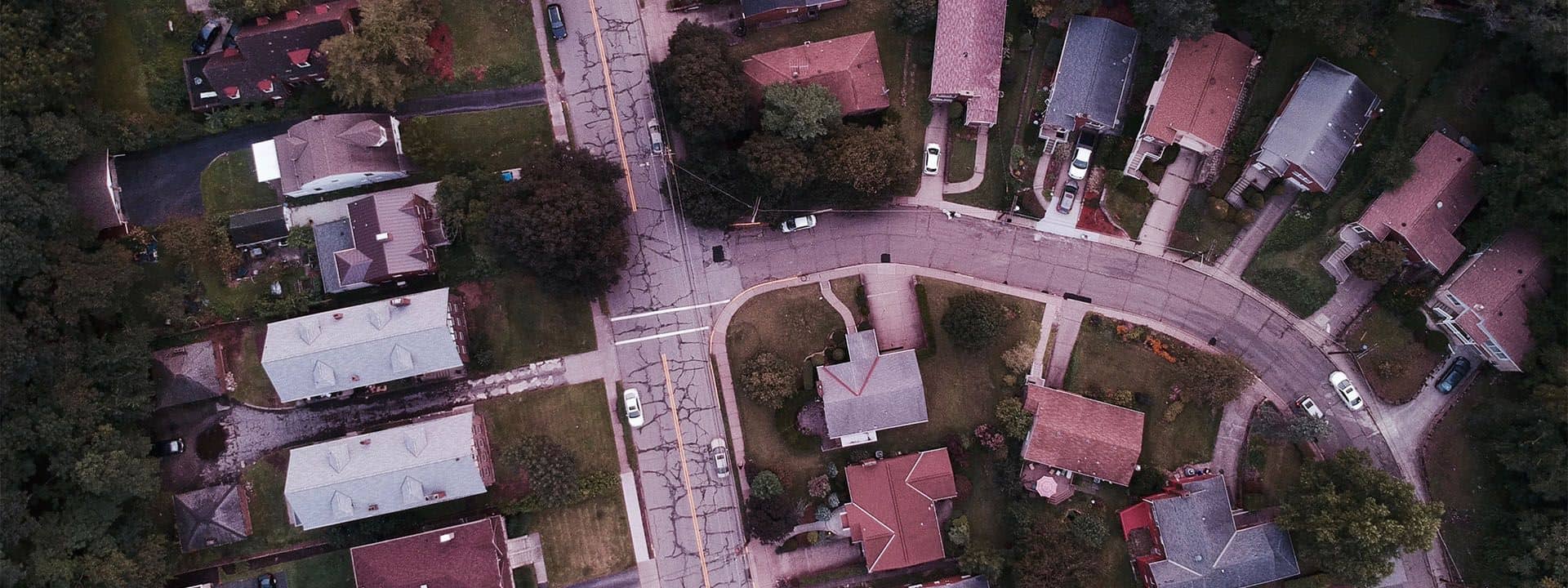






Latest Commentaries
Time to Question Demolition!
André Thomsen (Delft University of Technology) comments on the recent Buildings & Cities special issue ‘Understanding Demolition’ and explains why this phenomenon is only beginning to be understood more fully as a social and behavioural set of issues. Do we need an epidemiology of different demolition rates?
Where are Women of Colour in Urban Planning?
Safaa Charafi asks: is it possible to decolonialise the planning profession to create more inclusive and egalitarian urban settings? It is widely accepted that cities are built by men for other men. This male domination in urban planning results in cities that often do not adequately address challenges encountered by women or ethnic and social minorities. Although efforts are being taken to include women in urban planning, women of colour are still under-represented in many countries, resulting in cities that often overlook their needs.